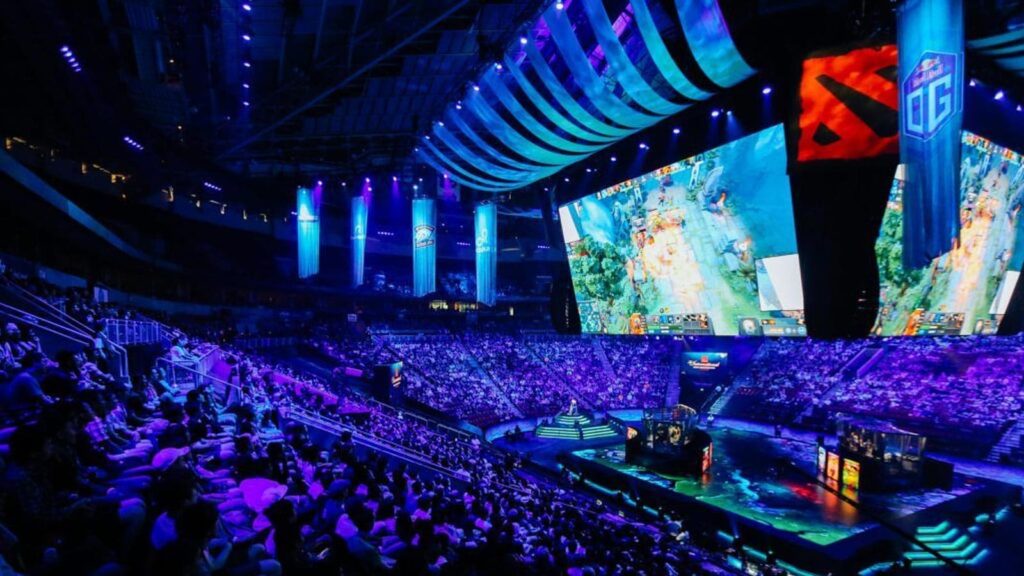
The Esports Economy: Beyond the Million Dollar Prize Pools
Esports prize money is a big driver for competition. After all, esports is no longer a niche hobby.
It’s a global phenomenon with an economy that extends far beyond the massive prize pools splashed across headlines.
While winning tournaments is undoubtedly a lucrative endeavor for professional players, the esports ecosystem thrives on an ever-changing financial landscape.
Let’s look into the world of the esports economy and uncover the hidden revenue streams that fuel this newfound industry:
1. Sponsorships: The Lifeblood of Esports
Sponsorships are the backbone of esports, providing crucial funding for teams, players, and events.
Major brands, ranging from tech giants like Intel and Logitech to non-endemic companies like Red Bull and BMW, are investing heavily in esports.
They recognize the value of reaching the young, tech-savvy, and engaged esports audience.
- Team Sponsorships: Brands often sponsor entire teams, providing financial support in exchange for logo placement on jerseys, social media promotion, and player endorsements.
- Event Sponsorships: Companies also sponsor major esports tournaments and leagues, gaining exposure through logo placements on broadcasts, stage banners, and digital assets.
- Player Sponsorships: Individual players with large followings can secure personal sponsorships, promoting products or services through social media posts, streams, and personal appearances.
2. Merchandise Sales: From Jerseys to Collectibles
Esports merchandise is a booming market, with fans eager to show their support for their favorite teams and players.
From jerseys and hoodies to mousepads and figurines, there’s a wide array of merchandise available for every esports enthusiast.
- Team Merchandise: Esports organizations often sell their own branded merchandise, generating revenue and fostering a sense of community among fans.
- Player Merchandise: Popular players can also create and sell their own merchandise, capitalizing on their personal brands and fan loyalty.
- Collectibles: Limited-edition collectibles, such as signed jerseys, rare in-game items, and exclusive merchandise, can command high prices from avid collectors.
3. Media Rights: The Broadcasting Goldmine
As esports viewership continues to soar, media rights have become a significant source of revenue.
Major streaming platforms like Twitch and YouTube, as well as traditional broadcasters like ESPN, compete for the rights to broadcast major esports events.
- Exclusive Streaming Rights: Platforms like Twitch often secure exclusive rights to broadcast specific leagues or tournaments, generating revenue through subscriptions, advertising, and sponsorships.
- Broadcast Rights: Traditional broadcasters are increasingly acquiring the rights to air esports events on television, further legitimizing esports and expanding its reach.
- Content Licensing: Esports organizations and content creators can also license their content to media outlets, generating revenue and expanding their audience.
4. Esports Betting and Fantasy Leagues: The Next Frontier
Esports betting and fantasy leagues are rapidly growing sectors of the esports economy.
As esports gains mainstream acceptance, more people are wagering on matches and participating in fantasy leagues, mirroring traditional sports.
- Esports Betting: Legalized esports betting is becoming increasingly common, with dedicated esports betting platforms and traditional sportsbooks offering odds on major tournaments and matches.
- Fantasy Esports: Fantasy esports platforms allow fans to create virtual teams of esports players and compete against each other based on real-world performance. These platforms generate revenue through entry fees, subscriptions, and advertising.
The Future of the Esports Economy
The esports economy is flowing with innovation, constantly adapting and expanding with new revenue streams and business models appearing on the horizon.
As technology continues its march forward, we can expect a wave of groundbreaking opportunities to emerge.
Imagine immersive viewing experiences through virtual and augmented reality or unique and verifiable digital collectibles powered by blockchain technology.
Or maybe even dedicated investment funds fueling the growth of esports ventures.
The future of esports is not just bright; it’s blinding.
For businesses, investors, and entrepreneurs, understanding the nature of the esports economy is crucial for success in this exciting and rapidly expanding industry.

